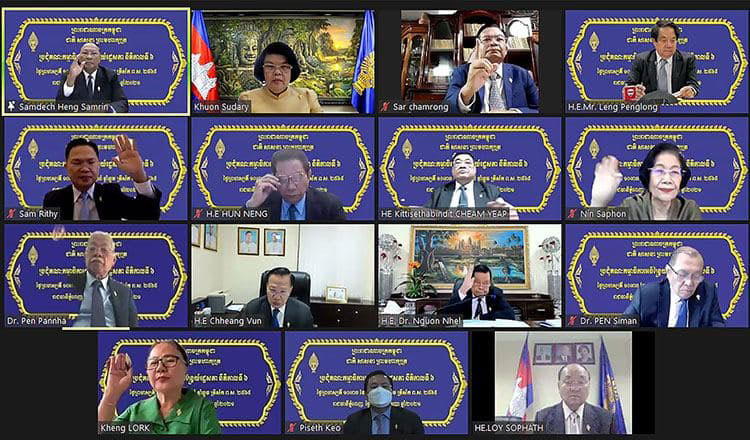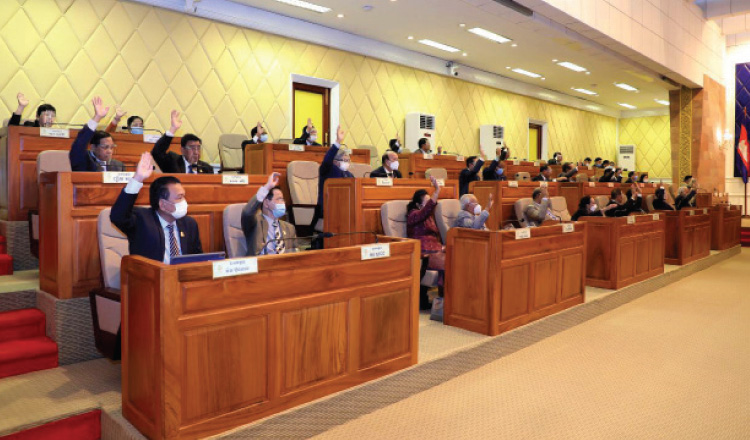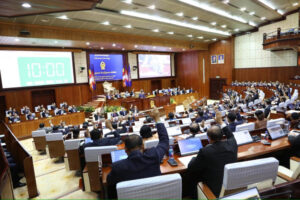Foreign companies welcome planned investment law
Groups representing US and European businesses in Cambodia have welcomed the Draft Law on Investment, which was approved by the National Assembly last week.
It aims to make the Kingdom more competitive and resilient to regional and global crises. The law would modernise and increase the productivity of local industries by offering incentives for new technology and value-added production processes. It also aims to attract more local and foreign investors by protecting their rights.
EuroCham Chairman Tassilo Brinzer said the European Chamber of Commerce’s experts were involved in the consultative process late last year and expect to continue offering advice as the law is expanded through specific sub-decrees. “This new Law can truly be considered a great and promising achievement of the Royal Government. The entire business community has been eagerly looking forward to this moment. As a chamber, it will allow us to promote Cambodia to foreign investors in this crucial time of economic recovery,” he said.
The planned law is designed to provide a legal framework to protect investors’ rights, whatever their nationality. “Investors will be treated without discrimination in relation to restitution, compensation or other economic remedies in the event that their investment suffers losses due to armed conflict, civil disturbance or state of emergency provided that there are laws and policies of the Royal Government of Cambodia on any reasonable restitution or compensation,” according to a copy. “Foreign investors shall not be subject to any discrimination on the basis of foreign nationality, except for landowners as stipulated in the Constitution of the Kingdom of Cambodia and any other regulations in force,” it said, adding that the government does not plan to harm investors’ assets by nationalising businesses. Projects that go against national interests could still be taken over by the state.
“The non-discrimination clause, except for land ownership, is obviously crucial for the trust of such foreign investors in Cambodia,” said Brinzer. “However, it is not entirely new. It was already included in principle in the 1994 investment law. We are glad this essential principle has been preserved and further finetuned. Through sub-decrees, it can be assured that it is clear that it not only applies to natural persons, but also to companies, regardless of their seat or incorporation.”
AmCham President Anthony Galliano is greatly encouraged the draft law proposes incentive 20 priority sectors, especially hi-tech, which employs a high-level of technology, innovation, research and development and digital infrastructure. He also praised the focus on sustainable development. “With most nations worldwide finally addressing climate change, the law has also taken up the task by promoting green and sustainable energy, which hopefully will reduce Cambodia’s high reliance on fossil fuels, currently in conflict with many global brands emission reduction strategies and positions to increase the use of renewable energies,” he said. “Agriculture also gets a boost with proposed incentives of up to a 150 percent tax deduction for production machinery upgrades and tax exemptions on imports of agri-industry systems. Perhaps one of the most material provisions is the support for local industries and SMEs, with the exemption on VAT for any purchase of inputs by for the implementations of QIPs [qualified institutional payments], that are made locally, a substantial stimulus for use of local inputs for final productions in regional and global supply chains.”
QIPs supporting the Kingdom’s exports will be able to import construction materials and production equipment with customs, excise and value-added tax exceptions. Brinzer says the government could go even further with sub-decrees to help SMEs. “By expanding the law’s incentives beyond QIPs in a second phase for certain industries or sectors would mean a great encouragement to many smaller entrepreneurs who are also eager to contribute to the development of the country’s economy 4.0,” Galliano added. Khmer Times






